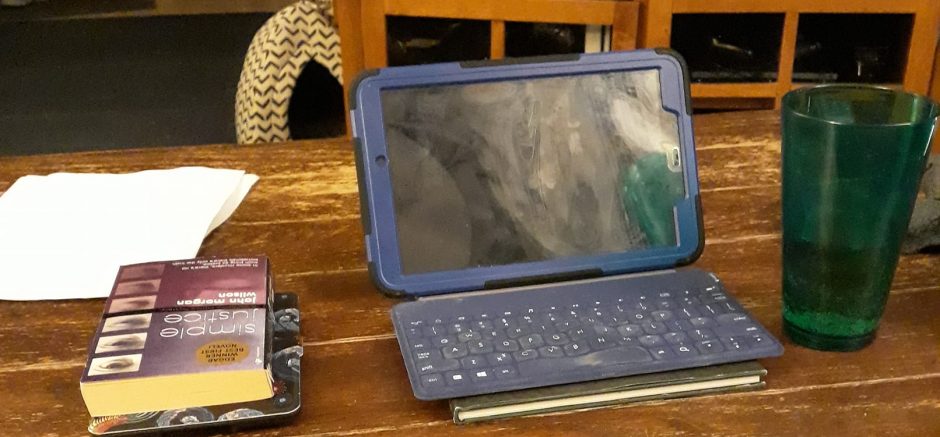Here's a switch. Writing about class concerns and a hyped TV show that I'm not ashamed to say is one of my few weekly sojourns into boobtubery. The essay won't be free for long, so catch it while you can.

Capital is dead labour, that, vampire-like, only lives by sucking living labour, and lives the more, the more labour it sucks.
—Karl Marx, Capital, vol. 1, chapter 10
What do television characters do for a living? There are plenty of doctors, more police than even a police state would deploy, corporate lawyers and brave prosecutors, spies and superheroes, and in old sitcoms, the very many men in gray suits who kept their occupations a secret even from their children. There are also store owners, and a few members of the cast might be cabbies or waitresses, but all of them will be portrayed as little more than broad types. And today we have The Office. TV is white-collar. When there are working class people on television, they are often portrayed as socially backwards, politically retrograde, and more than a little stupid—the abusive loudmouth Ralph Kramden, cranky racist Archie Bunker, Slobbo-American Al Bundy. There are more starship captains than longshoremen on television. True Blood’s depiction of working-class characters is refreshing, and that's even though some of them are malcontents, or drug addicts, or just not very bright. Because as bad as some of the working class people are, True Blood’s ruling class of vampires is so much worse.
One of the great secrets of modern society, according to the anarchists, socialists, and other working class radicals is this: workers don’t need the bosses. We could organize our own labor and reorder society itself, if only we could take power. Workers’ power is a secret power, one obscured by daily life under capitalism. “Every cook can govern,” as C. L. R. James once put it. The first two seasons of True Blood are all about Sookie realizing her secret power and her ultimate superiority over the forces—sometimes hidden and sometimes deceptively attractive—that would rule over her and all of us. One can track the ability of the human characters to navigate the supernatural and social challenges they face to their place in the working class. There are plenty of pitfalls for workers—that opium of the people, religion; the nanny state; the police and military (class traitors, if the bellowing reds on Berkeley street corners are to be believed); and various lumpen criminal activities to fall into. And indeed, in True Blood we have the Fellowship of the Sun, do-gooder “social worker” Maryann, and the underground market for V to bedevil the working characters. Sookie Stackhouse though has avoided these traps and thus discovered not just her magical abilities, but worker’s power. More.





